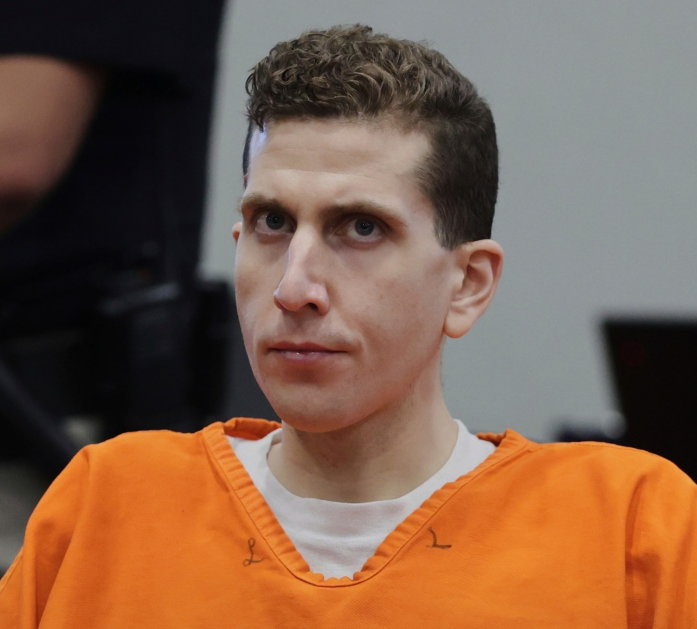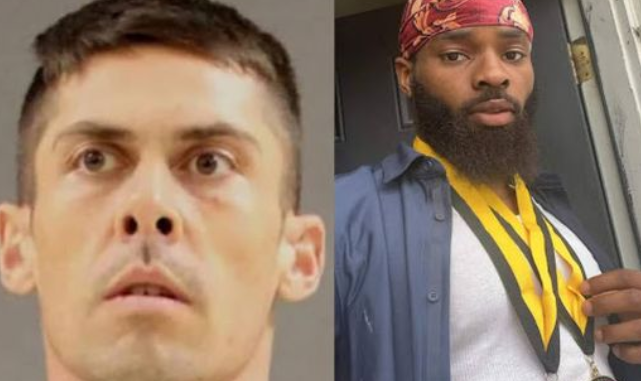
No Words, No Mercy: Bryan Kohberger Sentenced to Life for Chilling Idaho Quadruple Murder

In a courtroom tense with silence and heavy with grief, Bryan Kohberger stood stone-faced as the judge handed down a sentence that will define him for the rest of his life: life imprisonment without the possibility of parole. The ruling came months after the brutal slaying of four University of Idaho students shook the quiet college town of Moscow and gripped the nation in horror and speculation. On the day of sentencing, Kohberger offered no apology, no explanation, not even a word. Just silence.
It was a silence that echoed louder than any statement he might have made. Prosecutors, families of the victims, and the public watched as the 29-year-old criminology graduate student who once studied the psychology of killers was declared guilty of the very crime he perhaps once sought to understand. The courtroom was packed, the tension palpable. Parents and loved ones of the slain students held each other, some in tears, others staring blankly ahead, still struggling to make sense of the nightmare that has haunted them for nearly two years.
The sentence was the culmination of a complex and emotionally charged legal process that began in late 2022 when the lifeless bodies of Kaylee Goncalves, Madison Mogen, Xana Kernodle, and Ethan Chapin were found in their off-campus home. All four students were killed in their sleep, stabbed multiple times in a crime that prosecutors described as calculated, brutal, and deeply personal. The arrest of Kohberger in December of that year sent shockwaves through the nation, not only because of the nature of the crime but also because of who he was—a Ph.D. student in criminology with a focus on the very kinds of crimes he would come to commit.
Kohberger was captured nearly seven weeks after the murders, tracked down through a combination of cellphone data, surveillance footage, and a critical piece of DNA evidence left at the scene. His white Hyundai Elantra became a key element in the investigation, tying him to the area near the victims' home at the time of the murders. From the beginning, his defense team maintained his innocence, but the mountain of circumstantial and forensic evidence ultimately left little room for doubt.
During the trial, which was closely followed by national and international media, prosecutors painted Kohberger as a methodical and remorseless killer who stalked his victims before striking. The court heard chilling details—how he moved through the house in the dead of night, how one of the roommates saw a masked figure pass her in the hallway, and how DNA from a knife sheath was traced back to him. Jurors sat through harrowing accounts, some visibly disturbed, as forensic experts, detectives, and even Kohberger’s own classmates gave testimony.
The families of the victims gave powerful victim impact statements during sentencing. Kaylee Goncalves’ father, Steve, stood before the judge with tears in his eyes as he described his daughter’s dreams, her laughter, and the pain of knowing he would never walk her down the aisle. “He took everything from us,” he said. “And he doesn’t even have the decency to tell us why.” Madison Mogen’s mother clutched a framed photo of her daughter, her voice shaking with rage and heartbreak. “She was 21,” she said. “Twenty-one. Her life hadn’t even begun.”
Xana Kernodle’s younger sister spoke of sleepless nights and the trauma of losing not just a sibling but a best friend. Ethan Chapin’s family, who had kept a relatively low profile throughout the trial, broke their silence to call the murder “inhuman” and “devastating beyond words.” The emotional gravity of the moment was overwhelming. Even members of the court staff were seen wiping away tears.
And then, when it came time for Kohberger to speak—when he was given the opportunity to offer a statement, a motive, an apology, or even just acknowledgment—he declined. No words. No remorse. No explanation. Just the same blank stare that had marked his appearances throughout the trial. The judge, visibly moved, said that Kohberger’s silence was “perhaps the loudest admission of guilt” he had ever witnessed in his courtroom.
Kohberger’s defense attorneys, while acknowledging the severity of the case, had pushed for life with the possibility of parole, citing their client’s mental health and lack of prior criminal history. But the prosecution was unrelenting, demanding a sentence that ensured Kohberger would never walk free again. The judge ultimately sided with the state, ruling that the nature of the crime and the impact on the victims’ families warranted the harshest punishment allowed under Idaho law short of the death penalty.
Outside the courthouse, the crowd that had gathered for hours broke into applause as news of the sentence spread. Some held signs that read “Justice for the Four” and “Never Forget Kaylee, Maddie, Xana, and Ethan.” For the community of Moscow, a place unaccustomed to violent crime, the sentencing marked the end of a long and painful chapter. But for the families of the victims, the pain lingers.
“We got justice today,” said one relative, “but there’s no closure. How can there be when the person who took them away won’t even tell us why?”
The case of Bryan Kohberger has left a deep scar, not just on the small town of Moscow, but on the national consciousness. A man who studied criminology, who wrote papers about criminal behavior, and who once asked criminals to share their thoughts in online surveys about how they selected victims, has now become a living case study of the very evil he claimed to want to understand.
And as the prison doors close behind him forever, the world may never hear from Bryan Kohberger again. No final statement, no motive, no last words. Just silence. And for many, that silence may be the most haunting thing of all.


